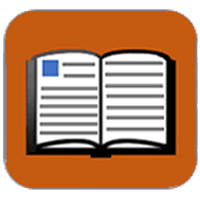Fire Communication & Education
This study found that ‘megafire’ originated in the popular news media over 20 years before it appeared in science. Megafire is used in a diversity of languages, considers landscape fires as well as urban fires, and has a variety of meanings in addition to size. What constitutes ‘mega’ is relative and highly context-dependent in space and time, given variation in landscape, climate, and anthropogenic controls, and as revealed in examples from the Netherlands, Portugal and the Global Fire Atlas. Moreover, fire size does not equate to fire impact.
Webinar recording.
Topic: Resiliency and Residual in Mission Critical Roles
Join Preston Cline as he discusses the importance of protecting your mental health and building resilience when working in mission critical roles, especially during challenging situations like wildland fires.
Webinar recording.
Land management-focused panel discussion hosted by the USDA Forest Service Rocky Mountain Research Station.
Join us for a live virtual panel session with social scientists and communicators in a conversation about public perceptions and social acceptance associated with Wildfire Crisis planning and implementation. This facilitated panel discussion will be guided by your questions.
Webinar recording.
Integrating Public Health into Forest and Fire Management, presented by Savannah M D’Evelyn, PhD, Postdoctoral Scholar, University of Washington, on November 17, 2023.
This webinar is part of a monthly series hosted by the International Association of Wildland Fire (IAWF), the Pau Costa Foundation (PCF), and the Association for Fire Ecology (AFE) to bring together diverse voices from the global wildland fire community.
Webinar recording.
To enhance Oregon’s wildfire resilience, the State Legislature passed the 2021 SB 762 Omnibus Wildfire Bill that enacted recommendations from the Governor’s 2019 Wildfire Council. This included a $220M investment in landscape resilience, suppression response, as well as some new regulations for the home ignition zone for community protection. Upon release of a map showing statewide hazard, there was a significant public outcry, often based on misunderstandings or misinformation, that ultimately led to the map being rescinded and reworked. Join us for this webinar, where we will explore the broader intent of the legislation, its requirements for mapping, where the effort stands today, and what we continue to learn from the public’s reaction.
Webinar recording.
Join the authors to learn more about how media in all forms can report diverse stories of fire, including strategies for physical and mental preparedness, engaging with incident personnel, and using scientific knowledge. Participants will also have the opportunity to provide feedback and suggest future ways to further enhance the capacity of media, public information officers, and scientists to work together.
View article.
The pathways tool provides a series of empirically informed processes, choices, and engagement tactics designed to foster shared agreement about the best practices for wildfire adaptation across site-specific local conditions. We outline how the tool can advance adaptation processes for a variety of users, including (1) a community oriented planning process that will help reinforce or catalyze collective action about fire management, (2) a systematic approach for monitoring differential progress toward development of fire-adapted communities, and (3) a potential feedback mechanism that informs programmatic foci or allocation of future resources across potential actions designed for diverse social conditions.
View article.
This concept paper presents a Stages of Collaborative Readiness framework. Collaborative, multi-party entities provide fundamental roles and contributions to prepare landscapes and communities to receive and recover from wildfire (identifying, connecting, and aligning stakeholders; co-developing strategies at scale; synchronizing operations; and facilitating science informed, continuous learning). The framework applies insights from the collaborative development literature to the context of forest and wildland fire risk management. It embeds the fundamental roles and contributions within a four-stage framework, identifying stage appropriate benchmarks and outcomes to increase the ability of a collaborative over time to serve those important functions.
View report.
In the face of this national challenge, Congress took bipartisan action to establish the Wildland Fire Mitigation and Management Commission through the 2021 Infrastructure Investment and Jobs Act. The legislation charged the 50-member Commission with the ambitious task of creating policy recommendations to address nearly every facet of the wildfire crisis, including mitigation, management, and postfire rehabilitation and recovery. Recognizing the urgency of the crisis, the Commission was given just a single year to conduct a sweeping review of the wildfire system and produce a comprehensive set of policy priorities.
View article.
Biophysical and social data collected at the property level are used to investigate whether practitioner defined “communities” within a contiguous geographic area are distinct in dimensions relevant to tailoring wildfire preparedness and mitigation education efforts. Specifically, we ask: How can local, community-specific social data inform wildfire education efforts across diverse communities? To answer this question, the research attends to the notion that there is not a one-size-fits-all approach to fire adapted communities by investigating what (e.g., the messaging, the programs, the communication mode), if anything, about wildfire education efforts should be tailored to the local context?



